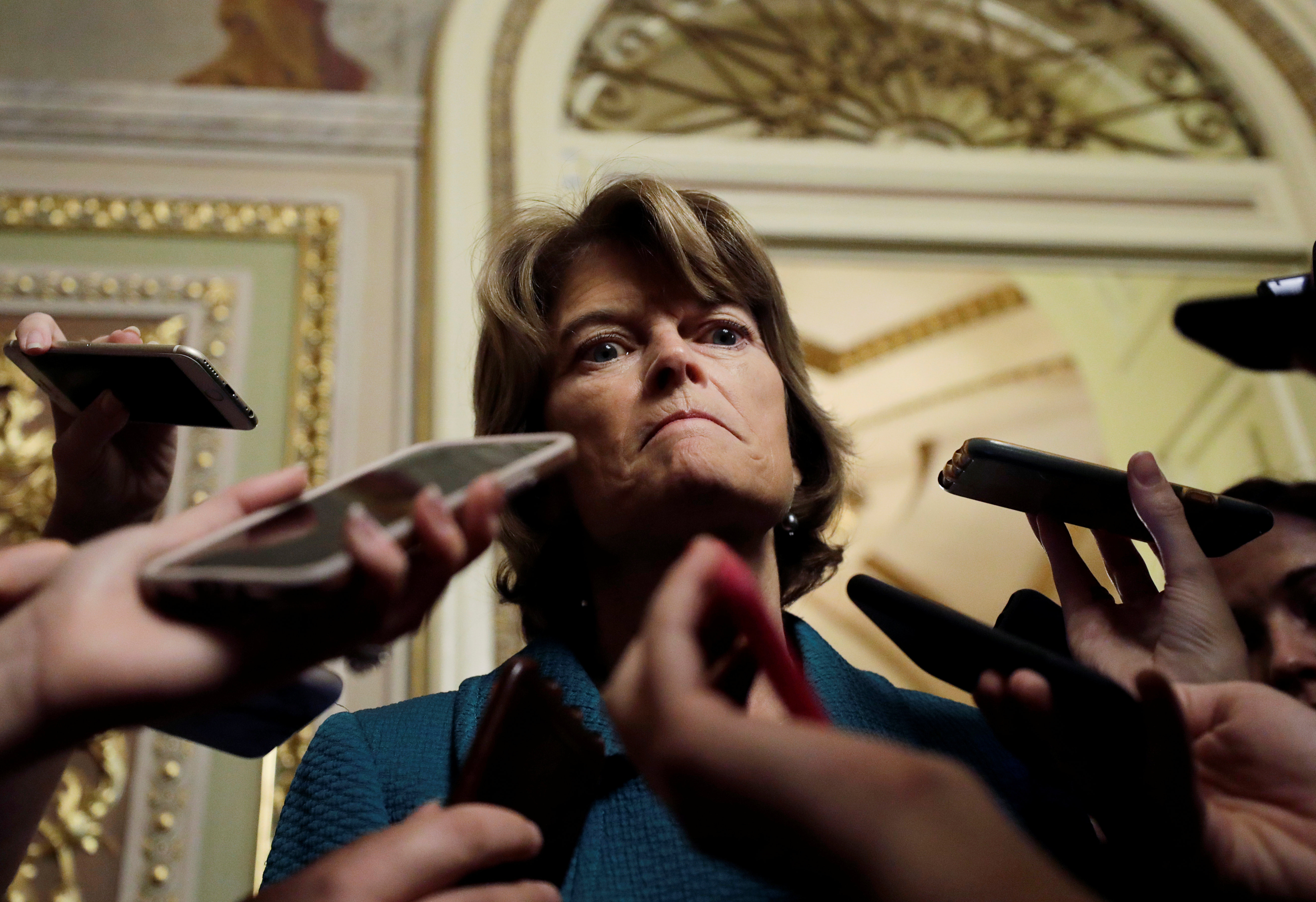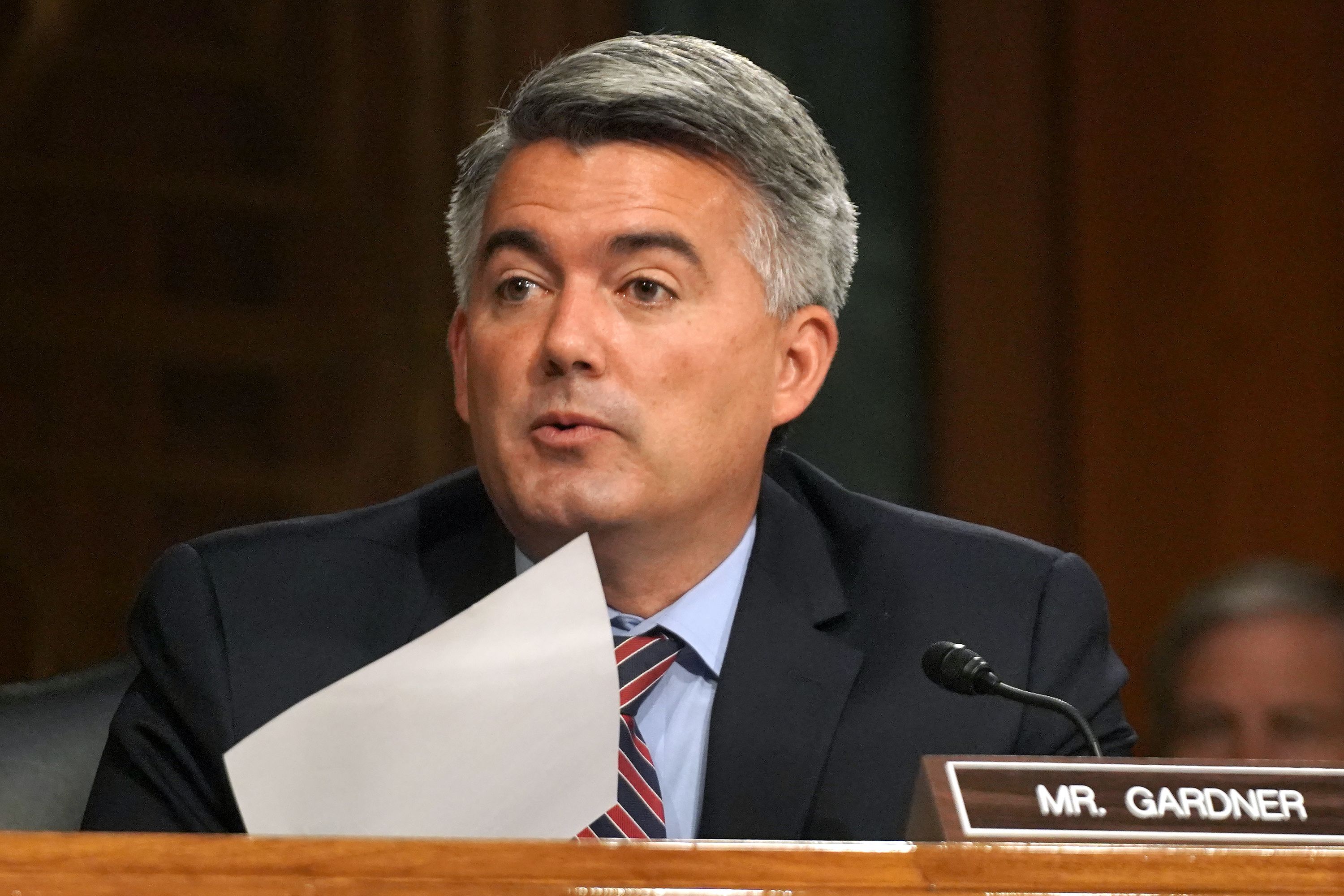The death of Supreme Court justice Ruth Bader Ginsburg not only amped up tension for the upcoming presidential election, but marked the beginning of a contentious debate over the selection of her successor.
Republicans hold a 53-47 majority in the Senate, meaning that a vote down party lines gives Republicans full control. However, the fate of any nominee put forth by President Donald Trump will be in the hands of a small group of GOP senators and their opinions on Trump’s right to appoint a justice mere months before the end of his term.
While most senate Republicans have said that they will align behind Senate Majority Leader Mitch McConnell and confirm Trump’s nominee, some have yet to announce their position. Two have already said that they will oppose any nominee before the presidential inauguration in January.
Only four Republicans need to break from McConnell to prevent the confirmation of Trump’s Supreme Court nominee, assuming every senate Democrat votes against confirming the president’s selection.
While there was some speculation that GOP Senators facing competitive reelections would be hesitant to support Trump’s eventual nominee, Sens. Martha McSally of Arizona, Thom Tillis of North Carolina and Joni Ernst of Iowa all announced their support shortly after Ginsburg’s passing. (RELATED: These Vulnerable Senators Risk Losing Their Seats, Costing The GOP The Majority)
Below is a roundup of which Senate Republicans will likely determine the makeup of the Supreme Court for the foreseeable future.
The “No’s”
Moderate GOP Sens. Lisa Murkowski of Alaska and Susan Collins of Maine both said that they would oppose any nominee put forth before January’s inauguration.

U.S. Senator Lisa Murkowski (R-AK) talks to reporters about her “no” vote after a procedural vote in the Senate on the confirmation of U.S. Supreme Court nominee judge Brett Kavanaugh on Capitol Hill in Washington, U.S., October 5, 2018. REUTERS/Yuri Gripas.
Murkowski, who also opposed the nomination of Justice Brett Kavanaugh in 2018, said that supporting a nominee would create an unfair “double standard.”
“When Republicans held off Merrick Garland because nine months prior to the election was too close, we needed to let the people decide,” she said in August, according to The Hill. “And I agreed to do that. If we say now that months prior to the election is OK when nine months is not, that is a double standard and I don’t believe we should do it.” (RELATED: Trump Takes A Shot At Murkowski After Her SCOTUS Comments)
Collins, who is locked in a tight reelection bid, said that the Senate must act “fairly and consistently” when confirming Supreme Court nominees, and that she would be open to the “Senate Judiciary Committee’s beginning the process for reviewing [Trump’s] nominee’s credentials.”
“Given the proximity of the presidential election, however, I do not believe that the Senate should vote on the nominee prior to the election,” she said. “In fairness to the American people, who will either be re-electing the president or selecting a new one, the decision on a lifetime appointment to the Supreme Court should be made by the president who is elected on November 3rd.”
The Unknowns
Republican Sens. Mitt Romney of Utah, Cory Gardner of Colorado and Pat Roberts of Kansas have yet to say whether they would vote to confirm a Supreme Court nominee before the inauguration.
Democrats hope that Romney, the only Republican in the Senate to vote to convict Trump during his impeachment trial, may once again break with his party, though his only comment thus far has been to give condolences to Ginsburg’s family.
His communications director denied a report that said he would vote against any nominee, and Romney said that he will not comment on the issue until after GOP senators meet tomorrow, according to CNN’s Manu Raju.
Gardner, a Republican facing a competitive reelection in a Democratic-leaning state, has also been quiet on the issue, Politico reported.
While a vote against any nominee would surely erode support from conservatives in the state, a vote for any nominee may drive away the moderate voters who elected him to his seat in 2014, according to Politico. Gardner has not indicated when he will announce his position.

Sen. Cory Gardner (R-CO) asks a question to Secretary of State Mike Pompeo as he testifies before the Senate Foreign Relations committee in Washington, DC on 30 July 2020. (Photo by GREG NASH/POOL/AFP via Getty Images)
Roberts, who is retiring after his term ends in January, is a self-described institutionalist. He may worry about what confirming Trump’s nominee could do to the body in the long run, Politico reported.
While he also offered his condolences to Ginsburg’s family, he has not indicated how he would vote.
All content created by the Daily Caller News Foundation, an independent and nonpartisan newswire service, is available without charge to any legitimate news publisher that can provide a large audience. All republished articles must include our logo, our reporter’s byline and their DCNF affiliation. For any questions about our guidelines or partnering with us, please contact licensing@dailycallernewsfoundation.org.


